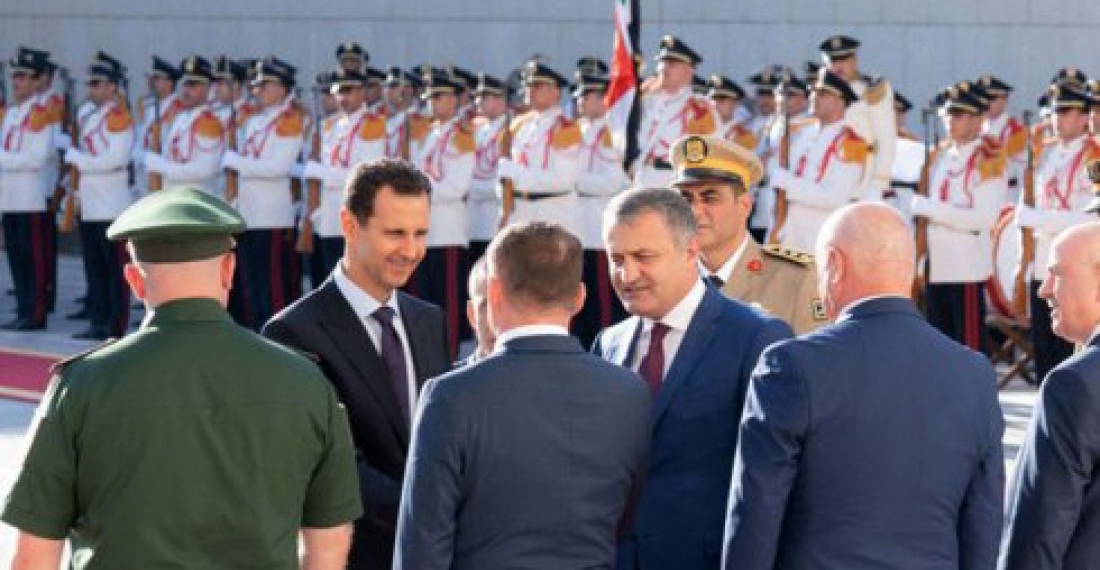The leader of the separatist leadership in South Ossetia, Anatoly Bibilov, is currently paying an official visit to Syria. On Monday (24 July) Bibilov met with President Bashar al Assad at the presidential palace in Damascus.
Syria in May became one of a handful of other countries that foillowed Russia in recognising South Ossetia and Abkhazia as independent states. Both territories seceded from Georgia in the early 1990s after internal conflicts erupted during the process of dissolution of the Soviet Union.
According to the Syrian News Agency, SANA, during the visit of Bibilov to Syria the two sides signed a Treaty of Friendship and Co-operation.
With the exception of Russia and a handful of opther countries South Ossetia is considered a part of Georgia by the international community.
source: commonspace.eu
photo: President Assad of Syria welcoming the South Ossetian kleader Anatoli Bibilov during his visit to Damascus on 23 July 2018 (picture courtesy of SANA news agency)







